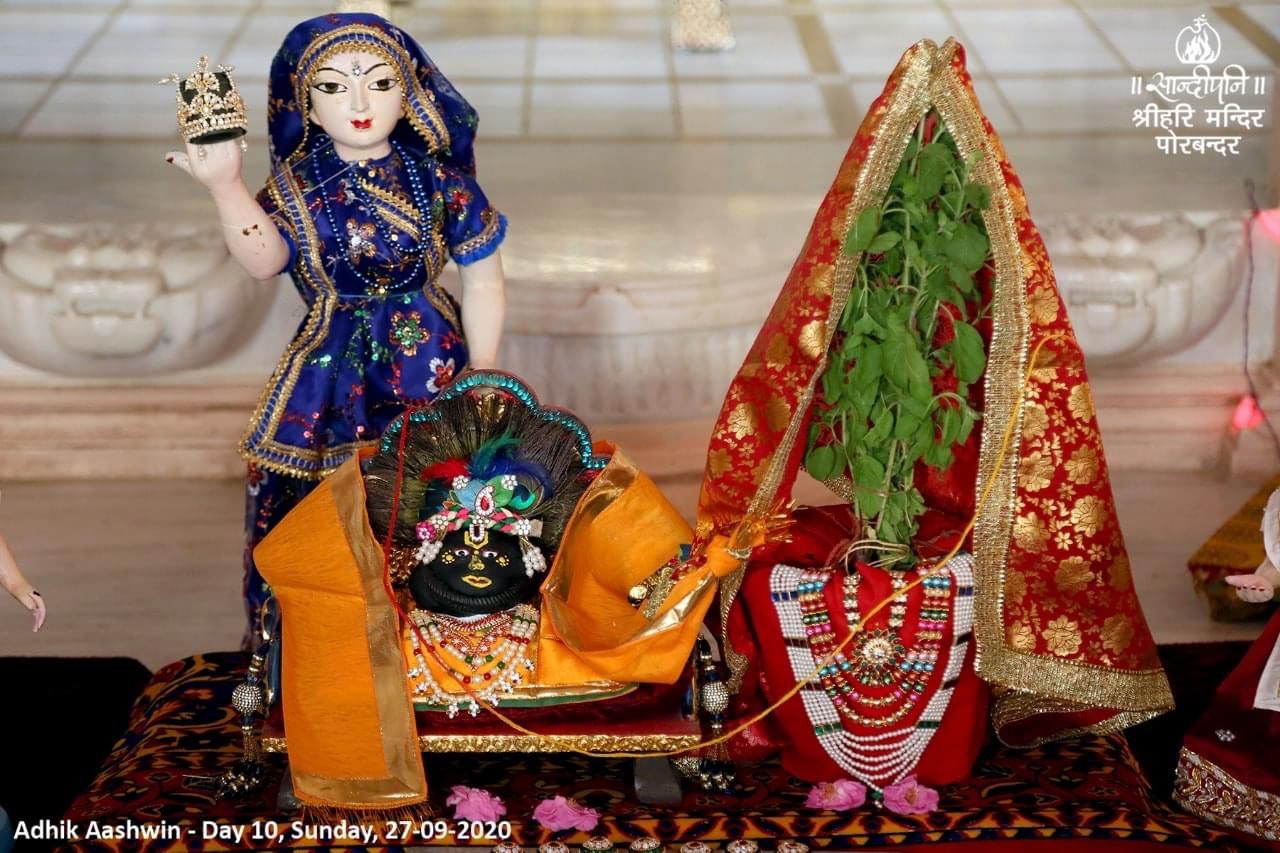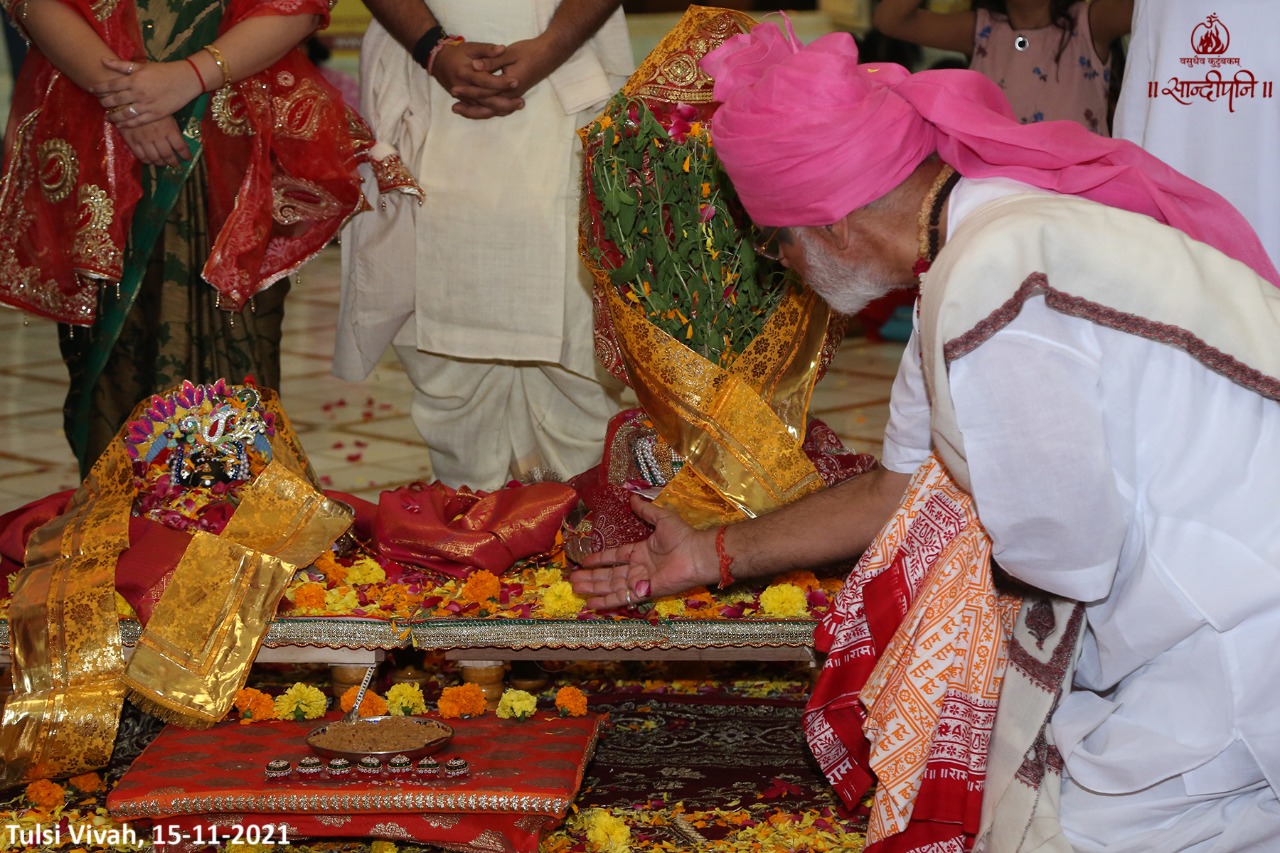Tulsi Vivah
Devi Tulsi’s Sacred Matrimonial Ceremony to Shri Hari
Devī Tulsī is a pious devotee of Lord ShriHari; and according to the Devī Bhāgavata Purāṇa, She is also the wife of ShriHari.
On the auspicious day of Tulsī Vivāha, we celebrate the sacred matrimonial ceremony of Shri Hari (in the form of Śāligrāma Bhagavāna) to Devi Tulsī—celebrated during the five days from Ekādaśī till Kārtika Pūrṇimā.

What does the Marriage of Devī Tulsī to Shri Hari signify?
Devi Tulsī represents surrender. May we, too, become dear to Shri Hari by seeking to surrender our mental inclinations (chitt-vritti) to Him once He awakens on Deva Uṭhī Ekādaśī; and may all our senses and inclinations seek to serve Him.
What can we learn from Devī Tulsī?
Just as she emits oxygen, may we emit positivity. As the beloved of the Lord whose thousand Names include giver of vital air (prānada), She, too, does the same.
What is the Significance of Kanyā-Dāna?
The Sadguru is the father who performs our nuptials with the Lord, whilst the surrendered disciple is the maiden (Tulsī) whose hand the Lord accepts at the bidding of the Guru.

What is “Brahma-Vivāha”?
Of the various forms of scripturally-sanctioned marriage ceremonies, this is when the father seeks an eligible groom, and takes his daughter to be offered to him—topmost quality of nuptials and most superior form of dāna.
For one whose life is fully surrendered to the Lord, His every breath is a triumphant trumpet, whilst his heartbeat is the steady wedding drum providing both melody and rhythm to Life as a celebration! May we learn from Devi Tulasī to surrender to Lord ShriHari through the guidance of our Sadguru. Jai Devi Tulsī!
To learn more about the story of Devī Tulsī, click here